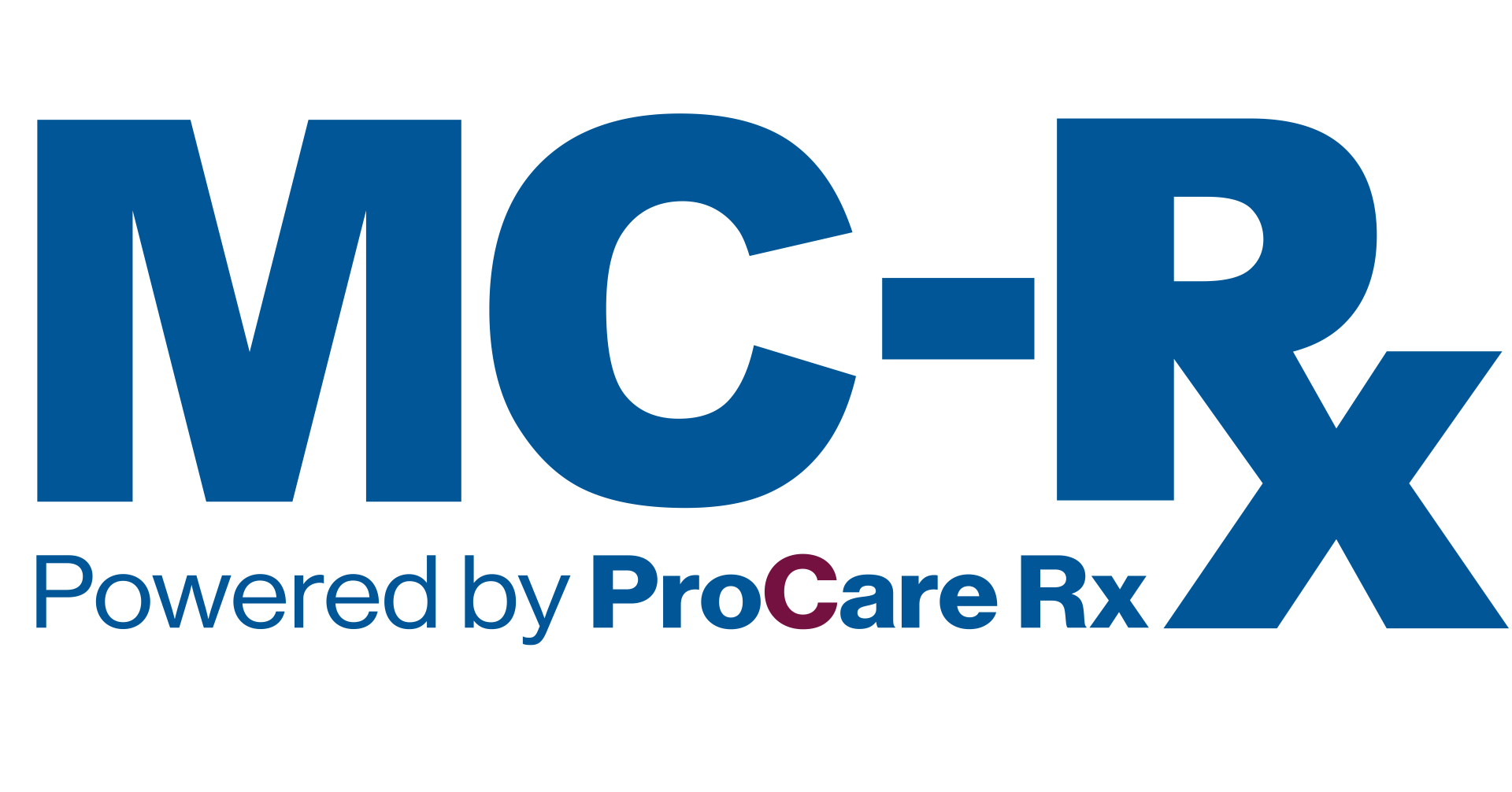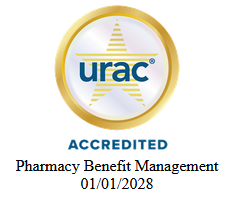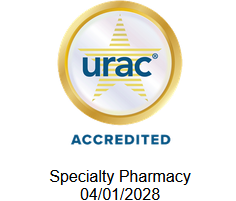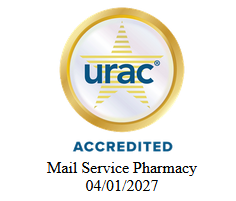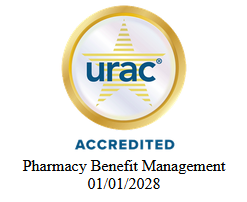CDC ORDERS RULES RELAXED FOR HOME DELIVERY PHARMACY MEDICATION DURING THE CORONAVIRUS PANDEMIC
November 11, 2020
With adults 60 years and older most at risk during the pandemic, and 85% of this demographic in the U.S relying on prescriptions, maintaining access to medication is vital.(1)(2) Compared to in-store pharmaceutical visits, obtaining medication from established mail order all but eliminates the risk of exposure and helps reduce the threat of prescription stockpiling panic by ensuring regularly scheduled deliveries. MC-Rx and its affiliated home delivery pharmacies are committed to meeting that demand.
(Gainesville, GA) March 30, 2020—Using home delivery pharmacies to obtain prescription medications is an immediate step those who are most at risk can take to protect themselves from the COVID-19 virus, according to MC-Rx, a national Pharmacy Benefit Manager (PBM). MC-Rx announces that, effective immediately, it has enhanced several aspects of its services to the company’s clients and their members to ensure medication availability. These protocols aim to adhere to current social-distancing procedures and quarantine actions while reducing the risks of both medication inaccessibility and prescription hoarding.
Details of the MC-Rx announcement include:
MC-Rx will support clients who are seeking to enact emergency procedures for prescriptions by allowing early refills of maintenance medications or other changes in plan design rules.
The MC-Rx affiliated Pharmacy Support Center will remain available 24/7 and can assist in finding available medications should any shortages occur.
MC-Rx will make 30-day prescriptions available at the 30-day retail price with no additional shipping fees in addition to the normal 90-day supply coverage.
Client support staff and clinical pharmacists will remain available for phone calls and emails from 9 AM to 6 PM Eastern Time, Monday through Friday.
The company’s wholly owned and internally managed data centers, which can be remotely administered by its IT staff, will continue to operate without interruption.
“MC-Rx is here to support our clients and their employees during these difficult times. We will work even harder to maintain your confidence as well as keep you informed of any changes,” pledged Steven Treff, President and COO of MCH.
The American Pharmacists Association (APA) recently called for health insurers and PBMs to implement flexibility into their operating protocols. (3) Specifically, the APA expressed concern about long in-store waits for medicine while pharmacists “address administrative barriers." APA also stated its support for the Center for Disease Control’s (CDC) recent instruction to Medicare Advantage and Part D plans to, among several changes, relax the restriction on home or mail delivery options for prescription drugs.
Few PBMs can offer such extensive depth in coordinating home delivery medication fulfillment, best prices, and medication compliance for its patients—with such skills vital considering the current pandemic. MC-Rx rises to this challenge with two commonly owned pharmacies that can ensure timely nationwide home delivery of critical medications. According to the CDC, just under half of the population has one or more prescriptions. (4) If all prescription holders switched to home delivery, it would support both the current federal and state mandates for social isolation.
Reports of requested increases in 30-day prescriptions to 90-days are rising. However, there is the concern that if this trend continues, it could cause medication shortages. Refills over normal patterns are recommended by the CDC only for “primarily high-risk patients, such as those with comorbidities,” according to a trade source.(5) MC-Rx reminds plan sponsors and their members that they can rely on the well-established mail-order pharmacy fulfillment network already in place in the U.S.
About MC-Rx
MC-Rx is a full-service Pharmacy Benefits Manager (PBM) with corporate offices in Gainesville, Georgia and Caguas, Puerto Rico, focusing on transparency and best-in-class service, and offering clients “lowest net cost.” MC-Rx’s retail network includes more than 65,000 national, regional, and local pharmacies. MC-Rx was formed by combining two URAC certified world-class PBM’s—ProCare PBM and MC-21. The ProCare companies were founded in 1988 with the vision of providing innovative computer software systems and services to various sectors of the healthcare industry. ProCare processed its first pharmacy claim in 1994 using proprietary, internally developed and managed systems and expanded in 1998 to full-service pharmacy benefit management through the acquisition of NextGen PBM. Today, the ProCare companies also include two affiliated mail-order and specialty pharmacies and are one of only five PBM providers that have built and own all of their component systems. MC-Rx now provides comprehensive, industry-leading service to clients in Puerto Rico and the U.S. For more information, visit www.mc-rx.com.
Andrew, Scottie. “Worried about Coronavirus? If Your Loved One Is over 60, Read This.” CNN, Cable News Network, 13 Mar. 2020, cnn.com/2020/03/12/health/what-60-older-need-to-know-coronavirus-wellness-trnd/index.html.
“Products - Data Briefs - Number 332 - February 2019.” Centers for Disease Control and Prevention, Centers for Disease Control and Prevention, 19 Mar. 2019, cdc.gov/nchs/products/databriefs/db334.htm.
“APhA Urges Insurers, PBMs to Immediately Remove Barriers on Prescription Drug Refills for Coronavirus Preparedness.” Home, 13 Mar. 2020, pharmacist.com/press-release/apha-urges-insurers-pbms-immediately-remove-barriers-prescription-drug-refills.
“Products - Data Briefs - Number 332 - February 2019.” Centers for Disease Control and Prevention, Centers for Disease Control and Prevention, 19 Mar. 2019, cdc.gov/nchs/products/databriefs/db334.htm.
McCook, Alison. “COVID-19: Stockpiling Refills May Strain the System.” IDSE, 11 Mar. 2020, idse.net/Policy--Public-Health/Article/03-20/COVID-19-Stockpiling-Refills-May-Strain-the-System/57583.
Media Inquiries:
Karla Jo Helms
JOTO PR
727-777-5140
Kimberly Zambrello
JOTO PR
727-777-4622
www.jotopr.com

Understanding GLP-1 Medications The landscape of obesity management is evolving, with GLP-1 receptor agonist (RA) medications emerging as a significant player. These FDA-approved drugs have proven effective in helping individuals lose weight, prompting a shift in how they are viewed and covered by health plans. However, the cost implications and strategic decisions surrounding these medications require careful consideration by employer groups and their members. The Case for GLP-1 Medications GLP-1 RAs, originally developed for diabetes management, have shown remarkable efficacy in weight loss. With the growing prevalence of obesity and its associated healthcare costs, there's increasing pressure on health plans to cover these medications. Despite their high cost—annual retail pharmacy expenses can exceed $10,000 per patient—GLP-1 RAs offer potential downstream savings by reducing obesity-related comorbidities such as diabetes, hypertension, and cardiovascular disease. Balancing Coverage and Cost Historically, weight loss medications were deemed "lifestyle" drugs and excluded from coverage. However, the rising popularity of GLP-1 RAs and their demonstrated benefits are challenging this perspective. For plan sponsors, the decision to cover these medications involves balancing the high upfront costs with the potential for long-term savings on medical expenses related to obesity. Cost-Containment Strategies For payers choosing to cover GLP-1 medications, several cost-containment strategies can be employed: Formulary Management : Deciding on the placement of these medications within the formulary is crucial. Options range from not covering the drugs to placing them on a high-cost tier with patient cost-sharing. Prior Authorization and Step Therapy : Implementing these measures ensures that only patients with a proper diagnosis (e.g., ICD-10 code for obesity) access these medications, preventing misuse and overutilization. Prerequisite Programs : Requiring participation in wellness or nutrition programs before approving weight loss medications can encourage lifestyle modifications that complement pharmacological treatment. Specialist Restrictions : Limiting prescriptions to weight loss specialists, such as bariatric doctors or endocrinologists, ensures appropriate therapy and monitoring. Duration Limits : Establishing treatment guidelines, such as discontinuing medications if a target weight loss is not achieved within six months, helps manage long-term costs. The Role of Brokers and Employer Groups Brokers play a pivotal role in guiding employer groups through the complexities of covering GLP-1 medications. Understanding the cost-benefit dynamics and available cost-containment strategies enables brokers to provide informed recommendations that align with their clients' financial and health objectives. Employer groups, in turn, must weigh the potential benefits of covering these medications against their budgetary constraints and the overall well-being of their workforce. Member Education and Engagement Effective communication with members is essential to ensure they understand the coverage options and adhere to prescribed treatments. Educational initiatives can include: Patient Communication Programs : Providing information on medication adherence, compliance, and lifestyle modifications. Continuing Education : Ongoing programs to keep members informed about the benefits and proper use of weight loss medications. Monitoring and Support : Utilizing pharmacy and medical data to track outcomes and adjust strategies as needed. Balance the Scale with Expert Guidance from MC-Rx The adoption of GLP-1 medications for weight loss represents a significant advancement in obesity management. However, the high costs associated with these drugs necessitate careful planning and strategic implementation by brokers, employer groups, and members. By employing robust cost-containment strategies and prioritizing member education, health plans can navigate the financial challenges while delivering meaningful health benefits to their populations. MC-Rx, as a full-service pharmacy benefits manager, offers the expertise and tools to help clients optimize their coverage decisions and manage the complexities of incorporating GLP-1 medications into their health plans. Here are just a few of the GLP-1 strategies we use to shield our clients from excessive costs: Implementation of Drug Management Tools, which is critical to ensure proper utilization for GLP-1s. Strategic Benefit Design, which also protects clients from improper GLP-1 utilization. Clear Member Communication, which is crucial for proper adherence and compliance. When implemented with an existing client, the above-listed strategies helped them achieve $382,000 in cost avoidance for GLP-1s. With the right approach, the benefits of these medications can be realized, contributing to better health outcomes and potentially lowering overall healthcare costs in the long run. For more information on managing GLP-1 medications and other pharmacy benefits, reach out to an MC-Rx expert today .


